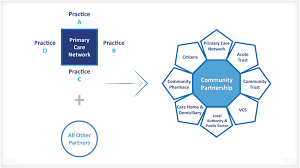
Advancing Wellness Through Primary Health Initiatives
The Importance of Primary Health Care
Primary health care plays a crucial role in ensuring the well-being of individuals and communities. It serves as the first point of contact for individuals seeking healthcare services and encompasses a wide range of essential health services that are accessible, comprehensive, and coordinated.
One of the key benefits of primary health care is its focus on prevention and early intervention. By promoting healthy behaviors, providing vaccinations, conducting screenings, and managing chronic conditions, primary health care helps prevent illnesses and detect health issues before they escalate.
Primary health care also plays a vital role in addressing the diverse needs of individuals across all stages of life. From prenatal care for expectant mothers to pediatric services for children and geriatric care for older adults, primary health care providers offer personalized and holistic care that considers the unique circumstances of each patient.
Furthermore, primary health care serves as a cornerstone in promoting equity in healthcare access. By offering affordable and culturally sensitive services to underserved populations, primary health care helps reduce disparities in healthcare outcomes and improves overall population health.
In addition to delivering essential medical services, primary health care providers also serve as advocates for their patients. They educate individuals about healthy living practices, empower them to make informed healthcare decisions, and coordinate their care across different healthcare settings to ensure continuity and quality.
In conclusion, primary health care is fundamental to building healthier communities and improving individual well-being. By emphasizing prevention, accessibility, continuity of care, and patient-centeredness, primary health care not only treats illnesses but also promotes overall wellness and supports individuals in achieving their full potential.
Six Key Advantages of Primary Health Care: Promoting Prevention, Personalization, and Patient Empowerment
- Promotes prevention and early intervention for better health outcomes.
- Addresses the diverse healthcare needs of individuals across all life stages.
- Enhances healthcare access and reduces disparities in underserved populations.
- Provides personalized and holistic care tailored to individual circumstances.
- Empowers patients to make informed healthcare decisions and adopt healthy behaviors.
- Coordinates care across different settings to ensure continuity and quality of services.
Four Major Drawbacks of Primary Health Care: Specialization, Wait Times, Accessibility, and Mental Health Services
- Limited specialized care available at the primary health level, requiring referrals for complex medical conditions.
- Long wait times for appointments and services due to high demand and limited resources in primary health facilities.
- Challenges in accessing primary health care in remote or underserved areas, leading to disparities in healthcare access.
- Lack of comprehensive mental health services at the primary health level, impacting the holistic well-being of patients.
Promotes prevention and early intervention for better health outcomes.
One of the key advantages of primary health care is its emphasis on promoting prevention and early intervention to achieve better health outcomes. By focusing on preventive measures such as regular screenings, vaccinations, and lifestyle counseling, primary health care providers can help individuals identify and address health issues before they escalate into more serious conditions. This proactive approach not only improves individual well-being but also reduces the burden on healthcare systems by preventing the need for costly treatments and hospitalizations. Ultimately, prioritizing prevention and early intervention through primary health care leads to healthier communities and better overall health outcomes for individuals.
Addresses the diverse healthcare needs of individuals across all life stages.
Primary health care excels in addressing the diverse healthcare needs of individuals across all life stages by providing comprehensive and personalized services tailored to each patient’s unique circumstances. From prenatal care for expectant mothers to pediatric services for children, and from preventive screenings for adults to geriatric care for the elderly, primary health care ensures that individuals receive appropriate medical attention at every stage of life. This proactive approach not only promotes early detection and management of health issues but also fosters a continuum of care that supports individuals in maintaining optimal health and well-being throughout their lifespan.
Enhances healthcare access and reduces disparities in underserved populations.
Primary health care plays a crucial role in enhancing healthcare access and reducing disparities in underserved populations. By offering affordable and culturally sensitive services to marginalized communities, primary health care providers bridge the gap between individuals and essential medical care. This proactive approach not only ensures that all individuals have access to necessary healthcare services but also helps address systemic inequalities, ultimately leading to improved health outcomes and a more equitable healthcare system for all.
Provides personalized and holistic care tailored to individual circumstances.
Primary health care stands out for its ability to provide personalized and holistic care that is tailored to individual circumstances. By taking into account the unique needs, preferences, and challenges of each patient, primary health care providers can offer comprehensive and patient-centered services that address not just the physical aspects of health but also the emotional, social, and environmental factors that influence well-being. This personalized approach ensures that individuals receive care that is specifically designed to support their overall health and empower them to achieve optimal outcomes.
Empowers patients to make informed healthcare decisions and adopt healthy behaviors.
Primary health care empowers patients by providing them with the knowledge and support needed to make informed healthcare decisions and adopt healthy behaviors. Through education, guidance, and personalized care plans, primary health care providers equip individuals with the tools to take control of their health and well-being. By fostering a collaborative relationship between patients and healthcare professionals, primary health care encourages individuals to actively participate in their own care, leading to better health outcomes and a higher quality of life.
Coordinates care across different settings to ensure continuity and quality of services.
One significant advantage of primary health care is its ability to coordinate care seamlessly across various healthcare settings, ensuring continuity and maintaining the quality of services provided to patients. By facilitating communication and collaboration between different healthcare providers, primary health care helps prevent gaps in treatment, reduces duplication of services, and enhances the overall patient experience. This coordinated approach not only improves health outcomes but also promotes efficiency in healthcare delivery, ultimately leading to better overall patient satisfaction and well-being.
Limited specialized care available at the primary health level, requiring referrals for complex medical conditions.
One significant drawback of primary health care is the limited availability of specialized services at this level, which often necessitates referrals for complex medical conditions. While primary care providers offer comprehensive and preventive care, they may lack the expertise and resources required to manage intricate or rare health conditions effectively. As a result, patients with complex medical needs may face delays in receiving specialized treatment and may need to navigate the healthcare system to access appropriate care from specialists. This reliance on referrals can lead to fragmented care, increased healthcare costs, and potential gaps in continuity that may impact patient outcomes and satisfaction.
Long wait times for appointments and services due to high demand and limited resources in primary health facilities.
One significant drawback of primary health care is the long wait times for appointments and services resulting from the high demand and limited resources in primary health facilities. Patients often face delays in accessing necessary healthcare services, leading to potential worsening of their conditions and increased frustration. The scarcity of healthcare providers and infrastructure strains the system, making it challenging for individuals to receive timely care and attention, ultimately impacting their overall health outcomes.
Challenges in accessing primary health care in remote or underserved areas, leading to disparities in healthcare access.
Challenges in accessing primary health care in remote or underserved areas contribute to significant disparities in healthcare access, posing a critical con of primary health services. Limited availability of healthcare facilities, shortage of healthcare providers, inadequate infrastructure, and geographical barriers can create substantial obstacles for individuals living in remote or underserved regions to obtain timely and quality primary health care services. As a result, these disparities in access can exacerbate existing health inequalities, leading to poorer health outcomes and reduced well-being among populations that are already vulnerable and marginalized. Efforts to address these challenges through innovative solutions, such as telehealth services and mobile clinics, are crucial in bridging the gap and ensuring equitable access to primary health care for all individuals, regardless of their geographic location.
Lack of comprehensive mental health services at the primary health level, impacting the holistic well-being of patients.
The lack of comprehensive mental health services at the primary health level poses a significant con, as it directly impacts the holistic well-being of patients. Mental health is an integral component of overall wellness, yet the limited availability of mental health resources and expertise in primary care settings can lead to undiagnosed or untreated mental health conditions. This gap in care not only hinders patients’ ability to address their psychological needs but also contributes to a fragmented approach to healthcare that fails to consider the interconnectedness of physical and mental well-being. Addressing this con by integrating robust mental health services into primary care is essential for promoting comprehensive healthcare that prioritizes the overall health and quality of life of patients.


